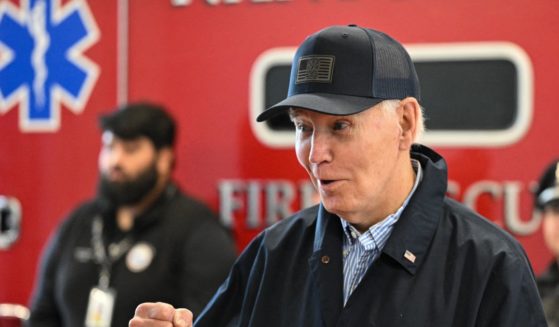Brett Favre opens up about the devastating toll football has had on his life
Concussions have loomed over the NFL like a giant Sword of Damocles, threatening to bring down America’s most popular sport as more people see it as too dangerous for young people to play.
The NFL didn’t get any help from Brett Favre, as the Packers legend opened up in an interview about just how much damage he believes football has done to his brain and to his quality of life in retirement.
Speaking on NBC’s “Megyn Kelly Today” Thursday, Favre claimed he suffered “thousands” of concussions during his 18-year playing career between 1992 and 2010.
The 48-year-old Favre said that not all or even most of his concussions were of the knocked-out variety we’ve traditionally associated with that kind of head trauma.
Said Favre, ”But as we’re learning about concussions, there’s a term we use in football and maybe other sports, that I got ‘dinged.’ When you have ringing of the ears, seeing stars, that is a concussion.
”If that’s a concussion, then I’ve had hundreds, probably thousands, throughout my career, which is frightening.”
Favre raised the specter of chronic traumatic encephalopathy, those three words that send chills down the spine of league executives, and said he worries that it might turn him into the same kind of shell of a man that other former NFL players have become.
”My football career has meant a great deal to me and has provided a lot of things, a lot of joy not only for me, but for my family,” Favre said. ”Now, my family doesn’t have to face the physical problems that could potentially arise, or the mental problems that could, but they are directly associated with me in that regard. It’s kind of a blessing and a curse.
”I grew up playing football. My dad was the coach. He was tough on me. He was a hard-nosed, just in-your-face-type of guy, and he didn’t know what concussions were about. We knew basically what a concussion was, but the thought process in those days was you would never come out of a game or practice because you had a little head ding. You would be considered, for lack of a better term, a sissy.
”My point in this is 30 years ago, there wasn’t a problem in anyone’s mind from playing football. It was just a matter of being tough, and the ones who stuck it out and made the most of it. Now, what we know is it has nothing to do with toughness, and that’s a lot scarier. So I look at my career as something wonderful. I didn’t know; had I known in Year 5, I would have looked at my future a bit closer as my career unfolded.”
Favre’s appearance was promotional; he and fellow panelists and athletes Abby Wambach, David Ross and Kurt Warner have all invested in a company that is making a drug, not yet FDA-approved, that could potentially treat concussions.
Still, even with the commercial overtones, Favre’s story joins the likes of Mike Webster, Dave Duerson and Junior Seau, men whose lives were ruined — and, in the latter two cases, ended by their own hand — because of the violence their brains endured playing a game.
And the NFL, already facing a looming talent drain as more parents refuse to allow their children to play football, just got another kick in the face.
Favre himself said that he would not encourage kids to play football.
”The brain and just the skull itself, for [8- to 15-year-olds], and maybe even older, is not developed enough and they should not be playing tackle football,” he said. ”We should protect them, especially when there is no treatment solution out there.”
“Protecting” kids has in some school districts and jurisdictions led to disbanding football programs or even turning the sport into an age-restricted product like cigarettes or alcohol.
One can only hope that Favre ducked the worst of the aftereffects, but “thousands” of concussions could be the beginning of yet another black mark in the public’s view of football.
Truth and Accuracy
We are committed to truth and accuracy in all of our journalism. Read our editorial standards.
Advertise with The Western Journal and reach millions of highly engaged readers, while supporting our work. Advertise Today.











